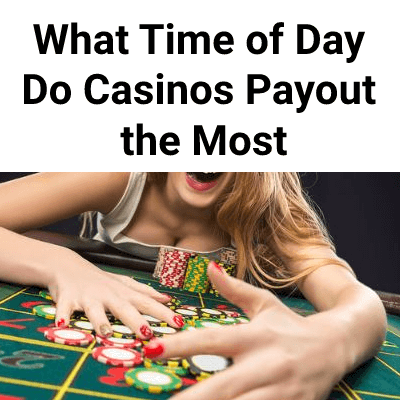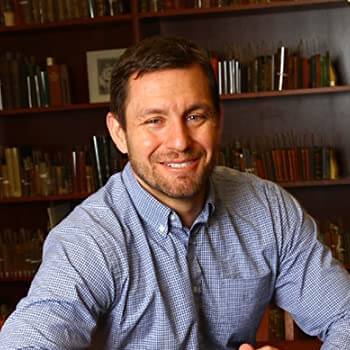What Time of Day Do Casinos Payout the Most
 There are a variety of superstitions that gamblers believe in. They have a notion that some objects bring good fortune. They feel that particular tables help them generate more money. Some numbers and types of bets have a better probability of winning than others. You get the picture: gamblers have many assumptions that aren’t backed by research. We could go on forever. According to some of the most experienced gamblers, there are some times during the day when the casinos payout the most.
There are a variety of superstitions that gamblers believe in. They have a notion that some objects bring good fortune. They feel that particular tables help them generate more money. Some numbers and types of bets have a better probability of winning than others. You get the picture: gamblers have many assumptions that aren’t backed by research. We could go on forever. According to some of the most experienced gamblers, there are some times during the day when the casinos payout the most.
Is There Better Time For Gambling?
According to some gamblers, the number of money players may earn from playing online casinos may be determined by the time of day. According to this notion, casinos may change their payout percentages on various days and hours. Because casinos begin to fill up about 6 p.m. on Fridays, gamblers claim that slot machines payout more often after that time to entice players to spend their money. The prize money is reduced since there are fewer players between 10 a.m. and 6 p.m.
Most gamblers feel that the ideal time to gamble is on Fridays from 6 p.m. to 10 p.m. People like online gambling before the weekend, therefore this is the greatest time of the week to market it. Around 10 p.m., people begin to leave the casino in droves, and as a consequence, game payouts begin to fall. Although this is a widely held belief, there are other alternative explanations, including:
- Even while some gamblers feel they can play every day of the week, it is better to avoid playing games of chance between the hours of 3 PM and 7 PM.
- Some players believe that weekends are the busiest periods for casinos and that the games payout more on those days.
- Because the casino is usually empty on the first day of the week, some claim that games pay out more until late on Mondays to attract a limited number of players.
Gambler’s Fallacy
Any gambling-related concepts that lack a strong scientific basis are referred to as “gambler’s fallacy.” In roulette, for example, if the previous 20 outcomes have all been red, the chance of a black result on round 21 has increased, correct? The majority of gamblers will respond yes when posed this question. Each spin has the same possibility of yielding a red or a black conclusion, and the occurrence of one over a while does not affect the other. As a result, in the twenty-first round, the odds of red and black are exactly and still equal, and the outcome may still be red.
Many gamblers believe that online casinos deceive their consumers on purpose to profit. Casinos use a variety of strategies to prevent players from gaining money, although this is theoretically possible for them. Because the casino may be defeated by using certain strategies, it is feasible to do so. There are several instances of lucky days, for example. Visiting the casino on a certain day and time boosts your chances of winning since casinos may modify their systems with the push of a single button.
Many gamblers are familiar with the terms RTP and house edge. Traditional blackjack’s RTP is just short of 99 percent. To put it another way, no game has an RTP of more than 100%, thus you’ll never be able to make more than your original investment.
On weekdays, the best time to visit a casino is between 10 a.m. and 5 p.m. Some people dislike performing in front of a huge crowd. If you want to play in a nice and quiet environment, you should play in the early morning hours.
Professional gamblers who utilize techniques that casinos frown upon should avoid playing before or after 5 p.m. on weekdays and weekends to avoid discovery. It is legal to count cards in blackjack, for example, but casinos would prefer not to witness this. Card counters are no longer served and are escorted out of the restaurant. If there are just a few other players in the casino, a card-counting gambler will attract a lot of attention since he is more likely to win than the other players.



